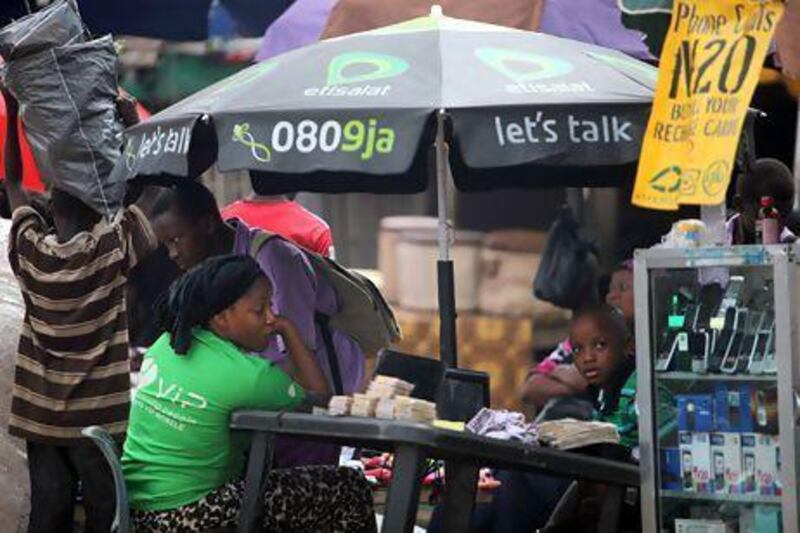Etisalat, Jumeirah Group and DP World are eyeing further investments in Africa, eager to tap openings in the world's fastest-growing continent but also mindful of the potential risks besetting investors in the continent.
Etisalat Group, the Abu Dhabi-based telecoms company, which operates in 10 countries on the continent including Egypt, Nigeria and Ivory Coast, is bidding to enter five new markets through its bid for Maroc Telecom. Etisalat last week said it was bidding for the French conglomerate Vivendi's 53 per cent stake in the Moroccan telecoms operator.
Maroc Telecom offers fixed-line, mobile and internet services in the kingdom, and is one of Africa's main telecoms operators, with units in Morocco, Burkina Faso, Gabon, Mali and Mauritania. "Africa is the next growth engine globally," said Ahmad Julfar, the chief executive of Etisalat Group at the Africa Global Business Forum yesterday in Dubai.
"The preferred structure for Africa is to have global partners, whether it is the government or private partners and we have both models working very successfully."
Facing growing competition for customers in its domestic market, Etisalat has earmarked Africa as offering rich investment opportunities.
"The growth is coming from the wireless as it is easy and quick to deploy and can reach very remote villages in Africa even before electricity," he said. "Not only mobile voice but mobile broadband; this is where growth is going to come."
Mobile penetration was about 80 per cent but there was room to grow to reach the benchmark average of 120 per cent. But broadband penetration was even lower at about 7 per cent, well below the global average.
Jumeirah Group, the Dubai-based hotels operator, was considering opening hotels in various contries, including Angola. It already manages hotels in Morocco and Egypt.
"Throughout Africa we see huge potential for the Jumeirah brand," said Gerald Lawless, the president and chief executive of Jumeirah. "A lot of it is driven by huge awareness of the Jumeirah brand from people coming into Dubai from Africa."
For DP World, the Dubai-based ports operator, Africa forms part of the company's shift in focus from slower-growing developed countries to fast-emerging markets. It operates ports in Egypt, Djibouti, Mozambique, Senegal, Algeria and South Africa.
But Jamal Majid bin Thaniah, the vice chairman of DP World, highlighted high costs and poor road infrastructure as barriers to further trade growth in the continent. He highlighted data showing only 13 per cent of Africa's trade was intra-regional compared with the European Union, where intra-regional trade amounted to half of the total flow of goods.
"Connectivity between nations is very important," he said. "It will cost a consignee US$4,000 to bring a car from China to Africa and it would cost them another $5,000 just to move the same car to a neighbouring nation."
Despite efforts by several African nations to clamp down on bribery and other corruption, a perception of graft can still put off some investors in Africa. In Transparency International's Corruption Perceptions Index last year, 90 per cent of African nations scored below 50 (0 being highly corrupt and 100 representing a lack of corruption).
"Anti-corruption and transparency measures are global trends all countries of the world are working on and certainly Africa has its share of countries that don't do so well," said Reem Al Hashimy, the UAE Minister of State. "But countries that do have a good performance develop partnerships which inspire other countries to emulate."





